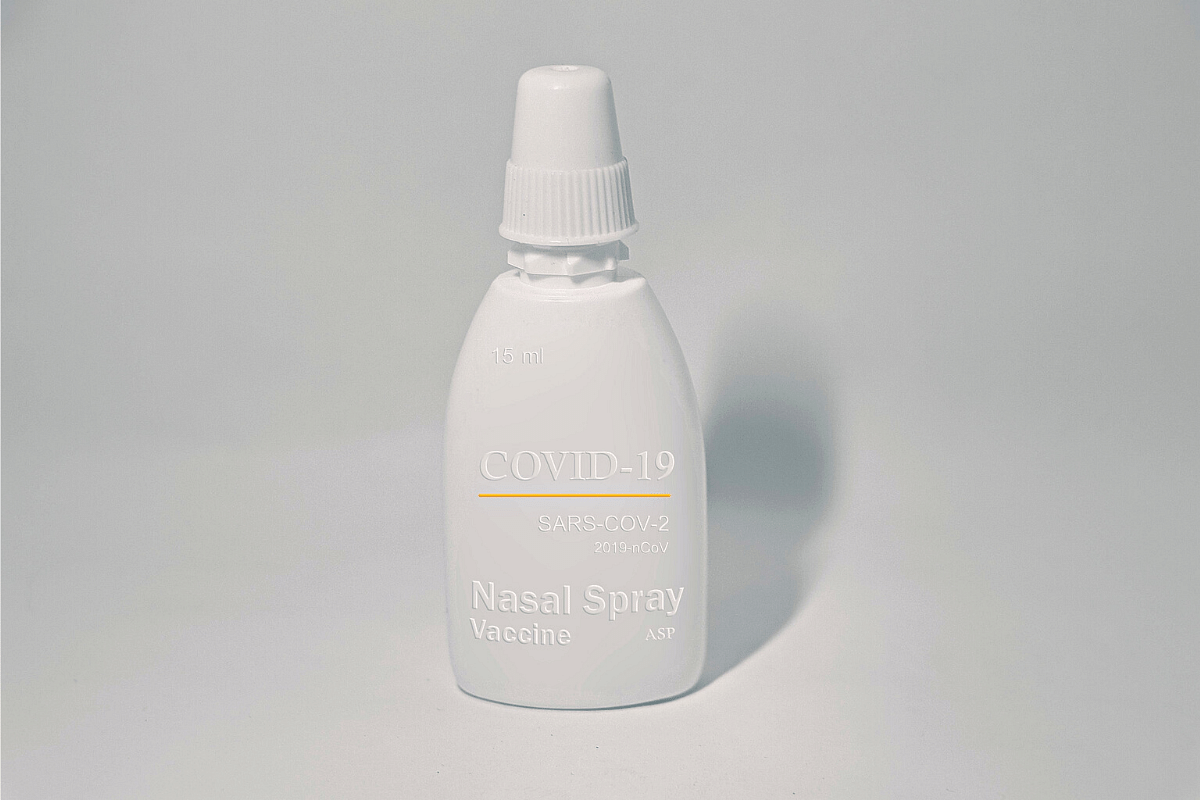Science
Bharat Biotech's Nasal Vaccine For Covid-19 Set To Advance Into Phase 2 Clinical Trial
- Bharat Biotech's intranasal vaccine for Covid-19 has received regulatory nod for Phase 2 trial.
- This is the first-of-its-kind vaccine to move to an advanced stage of human clinical trial in India.

Representative image
An intranasal vaccine being developed in India has been greenlit to enter mid-to-late-stage clinical trial.
The “BBV154”, a novel adenovirus-vectored intranasal vaccine for Covid-19 developed by Hyderabad-based Bharat Biotech, has received regulatory approval for Phase 2 trial.
Earlier, in preclinical toxicity studies, the vaccine was found to be safe, immunogenic, and well tolerated, in addition to eliciting a high level of neutralising antibodies during animal testing, said the Ministry of Science and Technology in a statement today (13 August).
Mice, hamsters, and macaques were immunised with a single dose of the virus during animal trials. “Post-challenge with SARS-CoV-2, viral clearance was observed in both lower and upper airways in all these animal models,” the company has stated on its website.
Thereafter, the vaccine candidate was put through Phase 1: a randomised, double-blinded, multi-centre study involving 175 participants.
After it was administered to healthy volunteers in the age group of 18-60 years in this phase, the single-dose vaccine was said to be well tolerated with no serious adverse events reported, according to the vaccine maker.
Now, after receiving the nod from India’s drug regulator, the vaccine candidate will move ahead to Phase 2 clinical trial.
This stage involves testing the vaccine on a large pool of participants, typically running into thousands or even tens of thousands of people.
In September last year, the Indian vaccine maker had entered into a licensing agreement with Washington University School of Medicine in St Louis, United States of America (USA), to develop the novel chimp-adenovirus, single-dose intranasal vaccine for Covid-19.
They got the rights to distribute the vaccine in all markets except the USA, Japan, and Europe and envisioned scaling up the vaccine to one billion doses, which means inoculation of a billion people using this vaccine technology.
Whereas Bharat Biotech’s Covid-19 vaccine Covaxin, which was approved for emergency use and has been in circulation in India, is administered through an injection, the intranasal vaccine will be taken in through the nostril, as a drop or spray.
This kind of vaccine is administered at the site of infection, or the point of entry for the virus. In the case of Covid-19, the entry point is the nose. So, the nasal vaccine is likely to help protect against both infection and transmission of the virus.
It is also said to stimulate a broad immune response. “An effective nasal dose not only protects against COVID-19, but it also prevents the spread of the disease by offering another kind of immunity that occurs primarily in the cells that line the nose and throat,” Dr David T Curiel, Director of Biologic Therapeutics Center and Professor of Radiation Oncology at Washington University School of Medicine, had said last year after the deal between the Indian and US parties was inked.
Furthermore, an intranasal vaccine is not only simpler to administer — given that it doesn't require trained healthcare workers — but it can lower the overall cost of inoculation, courtesy reduced use of medical consumables like syringes.
“Advantages of intranasal vaccines include needle-free administration, delivery of antigen to the site of infection, and the elicitation of mucosal immunity in the respiratory tract,” two University of Alabama researchers working in the Departments of Microbiology and Medicine wrote last month in Science magazine.
A nasal spray also happens to be a better choice over a shot in the arm for vaccinating children in particular, as the director of All India Institute of Medical Sciences Dr Randeep Guleria said earlier this year.
Russia is reportedly aiming to introduce a nasal spray for distribution by 15 September this year. The spray is said to have been already tested on children aged between eight and 12 years.
Around the world, there are seven intranasal SARS-CoV-2 vaccines in clinical trials, including Bharat Biotech’s BBV154.
The development of the Hyderabad-based company’s vaccine candidate is supported by DBT-BIRAC under Mission Covid Suraksha.
DBT is the Department of Biotechnology under the Ministry of Science and Technology, and BIRAC is Biotechnology Industry Research Assistance Council, which was set up by the DBT.
The Government of India had launched Mission Covid Suraksha in November 2020 to accelerate the development of Covid-19 vaccines in India. The effort is led by DBT and implemented by a dedicated Mission Implementation Unit at BIRAC.
A grant of Rs 900 crore was allotted for a year towards phase one of the mission, whose focus is end-to-end support, from preclinical testing all the way through to putting the vaccine on the market for combating the spread of infection caused by the novel coronavirus SARS-CoV-2.
Support Swarajya's 50 Ground Reports Project & Sponsor A Story
Every general election Swarajya does a 50 ground reports project.
Aimed only at serious readers and those who appreciate the nuances of political undercurrents, the project provides a sense of India's electoral landscape. As you know, these reports are produced after considerable investment of travel, time and effort on the ground.
This time too we've kicked off the project in style and have covered over 30 constituencies already. If you're someone who appreciates such work and have enjoyed our coverage please consider sponsoring a ground report for just Rs 2999 to Rs 19,999 - it goes a long way in helping us produce more quality reportage.
You can also back this project by becoming a subscriber for as little as Rs 999 - so do click on this links and choose a plan that suits you and back us.
Click below to contribute.
Latest